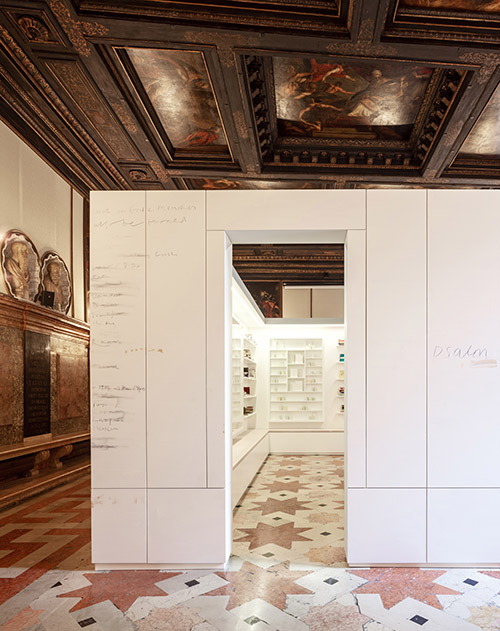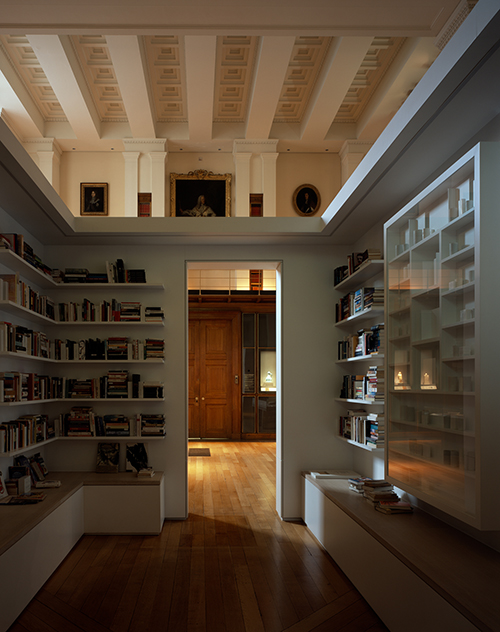This library celebrates the idea that all languages are diasporic: that we need other people's words, self-definitions and re-definitions in translation.- Edmund de Waal
Created as a 'space to sit and read and be', the library of exile was an installation by British artist and writer, Edmund de Waal, housing more than 2,000 books by writers who have experienced exile from across the world. Unveiled to great acclaim during the Venice Biennale in 2019, the library toured to the Staatliche Kunstsammlungen in Dresden before making its final stop at the British Museum, London, in 2020.
Designed as a temporary pavilion to invite contemplation and dialogue, visitors were encouraged to sit and read from the books and write their names inside ones that matter to them. The collection included works by writers from 100 countries, almost all of which were translations, exploring the idea of language as migration. Together, the library formed a record of repression whilst celebrating the response of the displaced.
'This is a history from Ovid and Tacitus, through Dante to Voltaire and Victor Hugo. It is the history of the twentieth century... It is dissidents. It is poets and novelists forced from their homes, Ai Qing in China and Czeslaw Milosz in Poland, Elvira Dones in Albania.' Other writers include Hannah Al-Shaykh from Lebanon, Samar Yazbek from Syria and Elizabeth de Waal, de Waal's own grandmother.
Alongside the shelves of books hung a quartet of de Waal's own vitrines, psalm, I-IV (2019), each holding pieces of porcelain, marble and steel. Their arrangements echoed the composition of Daniel Bomberg's 16th-century edition of the Talmud - a central text of Judaism - printed in Venice and notable for holding the Hebrew text, Aramaic translation and commentary on a single page.
The external walls of the library were painted with liquid porcelain into which de Waal inscribed the names of the great lost libraries of the world, from Nineveh in sixth-century BC Assyria to those more recently lost in Tripoli and Mosul.
After its time at the British Museum, the external panels of the library structure were gifted to the Warburg Institute, London, to incorporate into their major refurbishment. With the generous support of Book Aid International and the Embassy of the Republic of Iraq, the books themselves were donated to the library of the University of Mosul, after its own collection was destroyed in 2015.
Throughout the exhibition run at the British Museum there was a rich programme of virtual events including a series of panel discussions presented in collaboration with English PEN on themes raised by the library of exile. This included a day of free music performances, films, talks, installations and workshops to mark Refugee Week 2020. The programme and display were generously supported by AKO Foundation.
In all locations, the library was free to visit and remains accessible through its online catalogue.
-

Photo: Fulvio Orsenigo Ateneo Veneto, Venice
8 May - 29 September 2019
-

Photo: Hélène Binet Japanisches Palais, Staatliche Kunstsammlungen, Dresden
30 November 2019 - 16 February 2020
-

Photo: Hélène Binet British Museum, London
12 March 2020 - 12 January 2021
Read more about the exhibition on the British Museum's website here